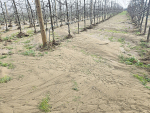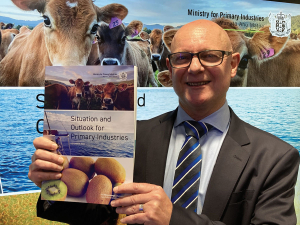A new initiative has been launched to provide up to $6000 worth of independent advice to farmers struggling with farm debt.
The support comes as the dry continues to bite with warnings of salt water intrusion into bores in coastal areas of drought-struck Northland and calls for river flows vigilance in the Waikato.
The government has allocated $200,000 for the Farm Business Advice Support Fund, to be managed by Rural Support Trusts.
For a qualifying farmer the fund will provide up to $6000 to pay for financial or business advice from an independent consultant. The National Council of Rural Support Trusts and New Zealand Bankers’ Association have recently signed the agreement for the fund.
The Rural Support Trusts will provide up to $3000, depending on an assessment of need, and the relevant bank will match that dollar for dollar.
Rural Support Trust national council chair Neil Bateup says the fund is for a farmer who is feeling pressure.
“This might be because there’s been some change or their bank has indicated they need to discuss their debt situation. The hope is that there may still be options available so that the wishes of all parties can form a solution for going forward.”
New Zealand Bankers’ Association chief executive Roger Beaumont says there is a recognition it’s in everyone’s best interest for a farmer to have up-to-date business and financial plans.
“This will inform conversations between the farmer and their bank.”
Rural Support Trusts will take an application from, or on behalf of, a farmer who might qualify for assistance. The consultant will provide a report, which will be given to the farmer and their bank.
This initiative involves New Zealand’s main rural lenders, including ASB, ANZ, BNZ, Heartland Bank, Rabobank, SBS Bank, TSB and Westpac.
Meanwhile the dry continues to bite.
In the Waikato the regional council is reminding all resource consent holders of water takes to carefully check their consent conditions and comply with low flow restrictions.
Most rivers and streams in Waikato River catchments are experiencing low flow conditions and flows are expected to keep dropping under the current dry (drought) conditions.
DairyNZ is advising in the Waikato that regardless of rainfall now, there will be a long haul until pasture covers rebuild.
It is useful to reassess the situation weekly, including feed budgeting to ensure farmers are on track to meet pasture and condition score targets by May 31.
Since there has been some rain, monitoring of facial eczema spore counts is advised and ensuring appropriate treatments are in place.
Good financial management for farmers is important with all business partners communicating and focused to keep to budget to achieve goals.


















